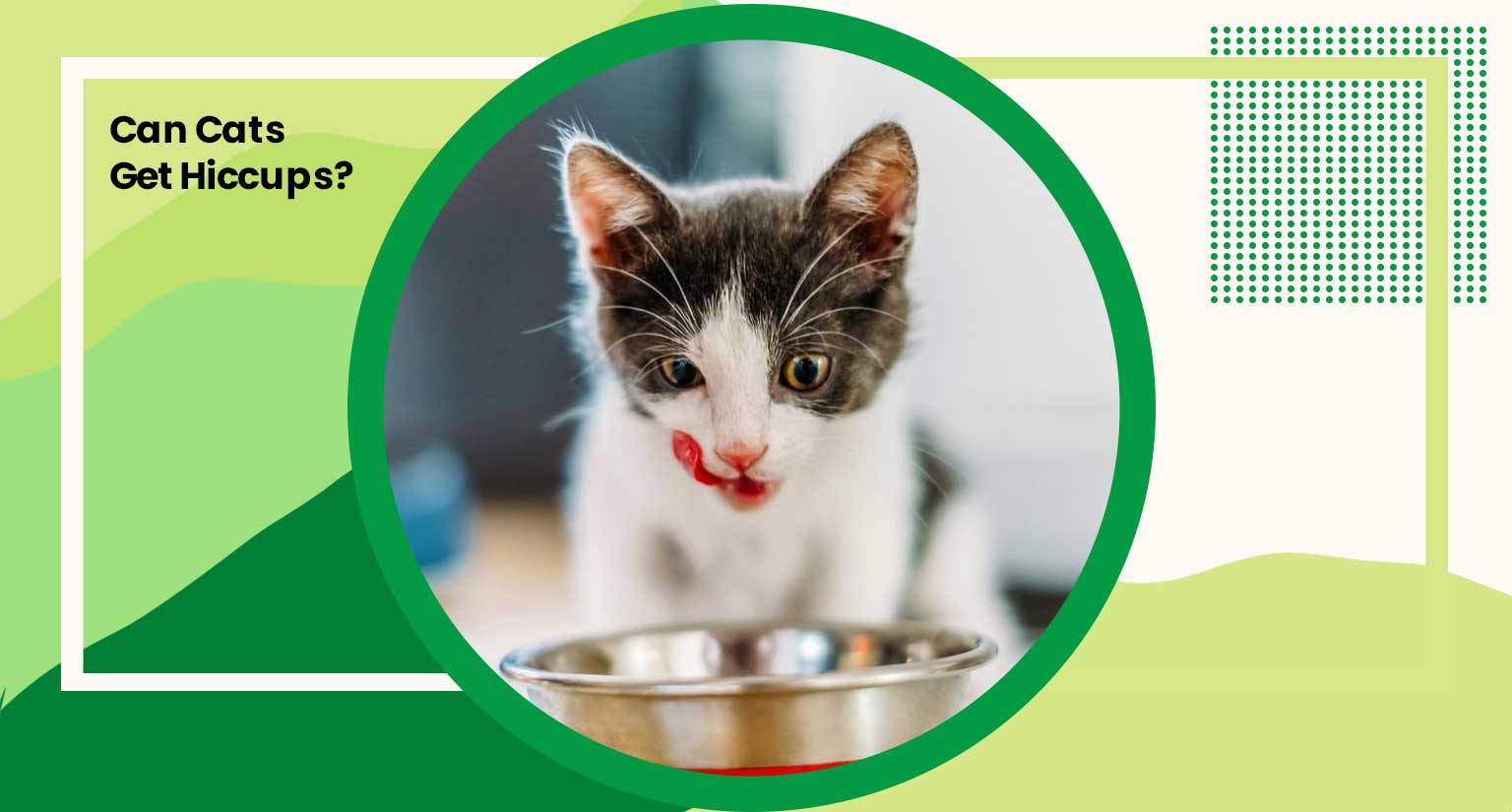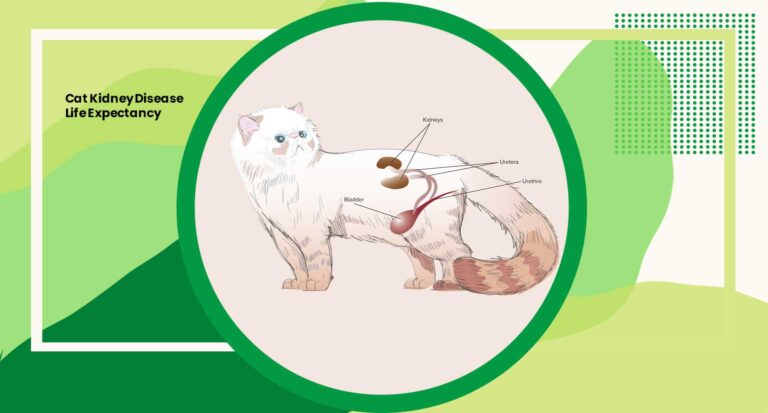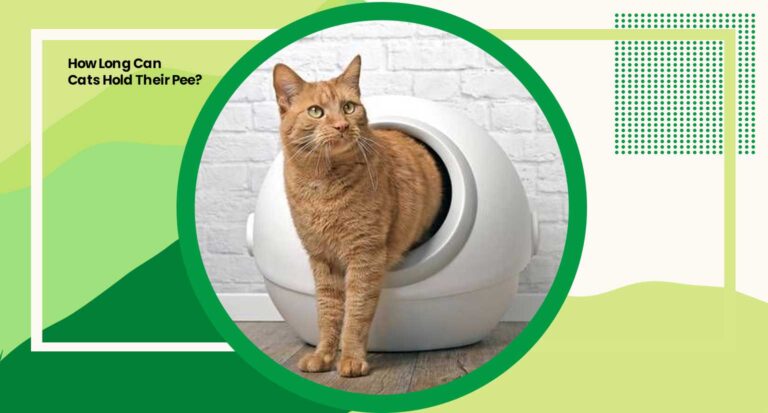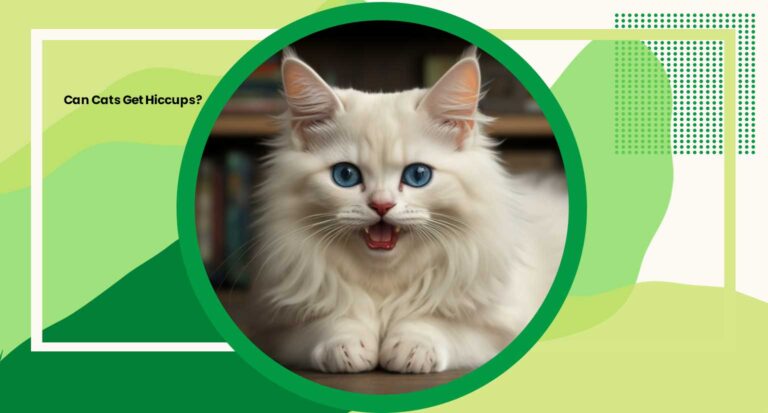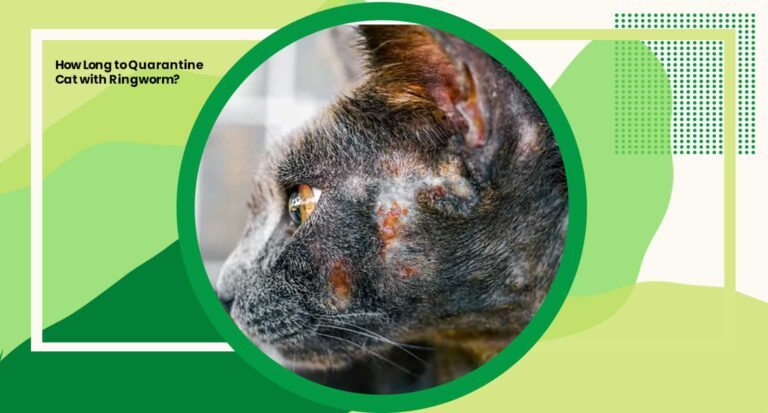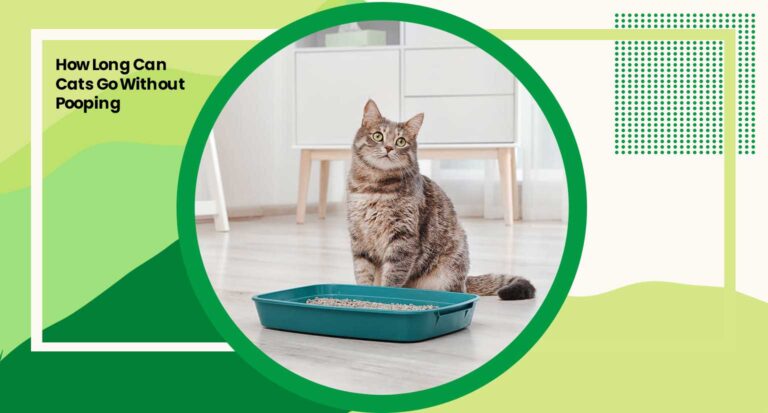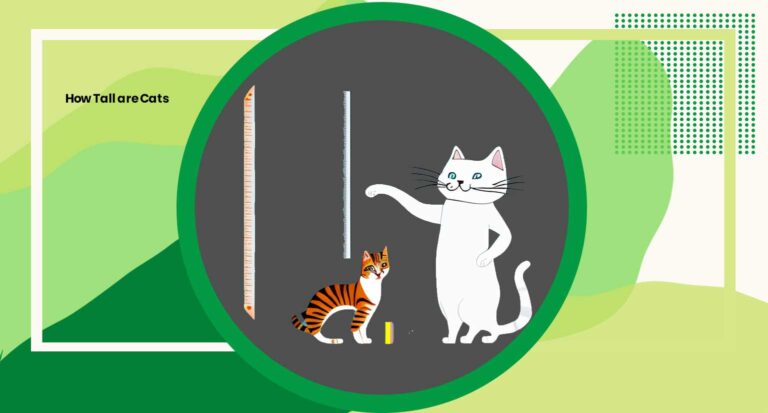Can Cats Get Hiccups?
Cats are fascinating creatures, known for their quirky behavior and unique physiology. One question that often piques the curiosity of cat owners and enthusiasts is whether these feline friends can experience hiccups.
In this comprehensive guide, we’ll delve into the intriguing world of feline health to answer the age-old question, Can cats get hiccups? Get ready to discover the facts and find out how you can ensure your furry companion’s well-being.
What Do I Do When My Cat Has Hiccups?
Discovering that your beloved feline friend has hiccups can be a cause for concern, but fear not. Cats can get hiccups just like humans, and there are steps you can take to help them.
Here’s a detailed guide on what to do when your cat experiences hiccups:
Stay Calm
First and foremost, remain calm. Hiccups in cats are usually harmless and may pass on their own. Avoid panicking, as your cat can pick up on your stress.
Observe Your Cat
Take a moment to observe your cat’s behavior. Hiccups may manifest as quick, repetitive contractions in the diaphragm. Note the duration and frequency.
Ensure a Safe Environment
Create a quiet and safe space for your cat. Reduce any potential stressors or sources of anxiety, such as loud noises or other animals.
Refrain from Feeding or Offering Water
While your cat has hiccups, avoid feeding or giving them water. Digestive discomfort can sometimes trigger hiccups, and offering food or water may exacerbate the issue.
Gently Stroke and Comfort Your Cat
Offer comfort to your cat by gently stroking or petting them. The soothing touch can help relax them, which might aid in relieving the hiccups.
Monitor the Duration
Keep an eye on the duration of the hiccups. If they persist for an extended period or seem to worsen, it’s a good idea to consult with your veterinarian.
Hiccups in cats are usually benign and temporary. By staying calm and following these steps, you can ensure your cat’s well-being and provide them with the care they need when hiccups arise.
Are Cat Hiccups Silent?
One common question cat owners have about their feline companions is whether cat hiccups produce sound or if they are typically silent. Let’s delve into this intriguing aspect of cat hiccups to provide you with a clear understanding.
Mostly Silent
In most cases, cat hiccups are silent. You may not hear any audible noise associated with their hiccuping. Cats tend to experience hiccups without any vocalization.
Occasional Soft Sounds
While cat hiccups are generally silent, in some rare instances, you might hear a soft, subtle noise when your cat has a hiccup. These sounds are typically very faint and not as pronounced as the hiccups in humans.
Factors Influencing Sound
The potential for sound during cat hiccups can depend on various factors, including the cat’s size, breed, and individual characteristics. Smaller cats or kittens may produce softer sounds, if any, compared to larger cats.
When to Be Concerned
Silent hiccups are usually harmless, if you notice any sudden, persistent, or unusual sounds during your cat’s hiccups, it’s advisable to consult your veterinarian. Unusual sounds could be a sign of an underlying issue that requires professional attention.
Cat hiccups are typically silent, with no audible noise associated with them. However, it’s essential to be aware of any changes in your cat’s hiccups, as unusual sounds may indicate an underlying health concern.
Is My Cat Choking or Just Hiccupping?
As a cat owner, it’s crucial to know the difference between your cat choking and experiencing hiccups. While both situations can be distressing, understanding the distinction is essential for your feline friend’s well-being.
Recognizing Choking
- Coughing and Gagging: If your cat is choking, you may notice intense coughing and gagging, which often includes retching and attempts to expel an obstruction.
- Panic and Distress: Choking can cause panic and intense distress in your cat. They may paw at their mouth or neck, desperately trying to clear the blockage.
- Struggling to Breathe: Choking typically results in difficulty breathing. Your cat may exhibit rapid, labored breaths or wheezing.
- Emergency Situation: Choking is a medical emergency. If you suspect your cat is choking, seek immediate veterinary assistance.
Recognizing Hiccups
- Repetitive Contractions: Hiccups are characterized by repetitive contractions in the diaphragm. Your cat may have a mild, rhythmic movement, often without any other signs of distress.
- No Obstruction: Hiccups occur without any obstruction in the airway. Your cat will continue to breathe normally between hiccups.
- Calm Demeanor: While hiccuping may be uncomfortable, it doesn’t typically cause panic or extreme distress in your cat. They may carry on with their normal activities.
What to Do:
If your cat is hiccuping, remain calm and monitor the situation. Hiccups in cats are usually harmless and may resolve on their own.
Understanding the difference between choking and hiccups can help you respond appropriately to ensure your cat’s health and safety.
How Long Do Kitten Hiccups Last?
Kitten hiccups can be a cute and curious phenomenon, often leaving pet owners wondering about their duration and frequency. Here’s what you need to know about how long kitten hiccups typically last:
Short Duration
Kitten hiccups are generally of short duration, lasting anywhere from a few seconds to a couple of minutes. These brief episodes are a common occurrence in young cats.
Infrequent Occurrence
Kitten hiccups tend to be infrequent. You may notice your kitten experiencing hiccups occasionally, but they are not a daily or constant event.
Variability Among Kittens
The duration of hiccups can vary from one kitten to another. Some kittens may have very short, almost unnoticeable hiccups, while others might experience slightly longer episodes.
Reducing Frequency with Age
As kittens grow and mature, the frequency of hiccups often decreases. What might be a common occurrence in very young kittens tends to become less frequent as they get older.
Differences
Just like in humans, individual differences exist. Some kittens may experience hiccups more often, while others may rarely hiccup. It’s usually a normal part of their development.
Monitoring Hiccups
While kitten hiccups are usually harmless, it’s a good idea to monitor them. If your kitten’s hiccups persist for an extended period or become more frequent, it’s advisable to consult your veterinarian to rule out any underlying health issues.
In summary, kitten hiccups are typically short in duration and tend to decrease in frequency as your kitten grows.
They are generally considered a normal part of feline development. However, if you have concerns about your kitten’s hiccups, especially if they become more frequent or prolonged, seeking guidance from your veterinarian is a responsible course of action.
Is Hiccuping Normal for Cats?
Hiccuping in cats is a common and usually benign occurrence. Here’s what you need to know to understand whether hiccuping is considered normal for your feline companion:
Occasional Hiccups are Normal
Occasional, short-lived hiccups in cats are generally considered normal. Just like humans, cats can experience hiccups as a part of their physiology.
Common in Kittens
Hiccups are especially common in kittens. Their developing diaphragms can sometimes spasm, leading to hiccups. As kittens grow and their bodies mature, hiccups often become less frequent.
Stress or Excitement May Trigger Hiccups
Stress, excitement, or rapid eating can sometimes trigger hiccups in cats. This is normal and not a cause for concern, as long as the hiccups are occasional and brief.
Hiccups as a Digestive Aid
Some experts believe that hiccups in cats might serve as a natural way to help move air through their digestive system. It’s considered a part of their body’s mechanisms for maintaining health.
When to Be Cautious
While occasional hiccups are generally normal, there are situations where caution is warranted:
Frequent or Prolonged Hiccups
If your cat experiences hiccups frequently or for an extended duration, it’s advisable to consult with your veterinarian to rule out any underlying health issues.
Accompanied by Other Symptoms
If hiccups are accompanied by other concerning symptoms, such as labored breathing, lethargy, or loss of appetite, seeking veterinary attention is recommended.
Feline Hiccups: Normality and Causes
Cat Hiccups Are Normal
Occasional, short-lived hiccups in cats are considered a normal and benign occurrence. They can be more common in kittens and often decrease in frequency as cats mature.
Natural and Harmless
Hiccups in cats are believed to be a natural way for their bodies to regulate air in the digestive system. In most cases, they do not pose a threat to your cat’s health.
Monitoring is Key
While cat hiccups are usually harmless, it’s important to monitor their frequency and duration. If hiccups become frequent, prolonged, or are accompanied by other concerning symptoms, consulting with a veterinarian is recommended to rule out any underlying health issues.
Conclusion
Occasional hiccups in cats are considered normal and benign, they’re generally harmless and often attributed to the natural regulation of air in their digestive system.
Typically more common in kittens, these hiccups tend to decrease as cats mature. Monitoring the frequency and duration of hiccups is wise, and while they usually don’t indicate health issues.

